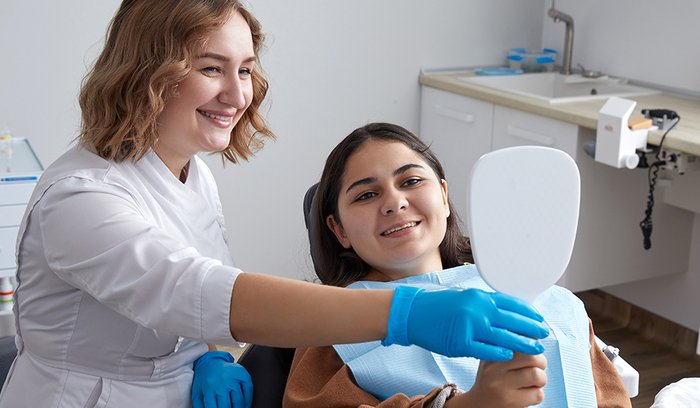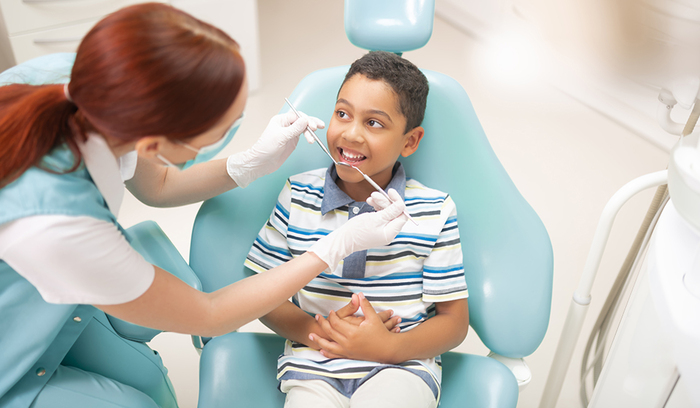Missing teeth can affect more than just your smile. They can influence your ability to eat comfortably, speak clearly, and feel confident in social situations. Tooth loss is common, and there are many replacement options available today. Among these, dentures in Houston remain a widely used and reliable solution. They continue to provide practical, cost-effective, and aesthetically pleasing results for patients of all ages. While dental implants have become popular, dentures still offer unique advantages that make them a trusted choice.
Dentures are designed to restore both function and appearance. They allow patients to maintain a natural-looking smile, improve chewing, and support the facial structure. Understanding the benefits, types, and maintenance of dentures helps patients make informed decisions for their oral health.
Understanding Dentures
Dentures are removable appliances that replace missing teeth and surrounding tissue. They are custom-made to fit the unique shape of your mouth. Today’s dentures are more comfortable and natural-looking than ever before. Dentures are also versatile, suitable for patients missing a few teeth or an entire arch.
Key features of dentures include:
- Custom fit for each patient
- Durable materials designed for daily use
- Options for partial or full tooth replacement
- Support for facial muscles to prevent sagging
Dentures continue to evolve, combining function and cosmetic appeal to meet modern dental needs.
Types of Dentures
Complete Dentures
Complete dentures replace all teeth in either the upper or lower jaw. They are typically recommended for patients who have lost all their natural teeth. These dentures rest directly on the gums and are carefully molded to ensure a secure fit. Properly fitted complete dentures allow patients to eat, speak, and smile with confidence.
Partial Dentures
Partial dentures are used when some natural teeth remain. They fill the gaps between existing teeth to prevent shifting and maintain proper alignment. Partial dentures are usually attached to a metal or acrylic framework that clasps onto the surrounding teeth, providing stability and comfort.
Advantages of Dentures in Houston
Despite newer dental technologies, dentures remain popular for several reasons. They provide a trusted solution for tooth replacement, offering both functional and aesthetic benefits.
Key advantages include:
- Improved Appearance: Dentures restore a natural smile and facial structure.
- Enhanced Chewing Ability: Patients can enjoy a wider variety of foods comfortably.
- Speech Support: Missing teeth can affect pronunciation; dentures help restore normal speech.
- Cost-Effective: Dentures are generally more affordable than implants.
- Quick Solution: Dentures can be made and fitted relatively quickly compared to surgical options.
- Customizable Options: Patients can choose materials, shades, and designs for a natural look.
These benefits highlight why dentures continue to be a reliable choice for many patients in Houston.
Signs That Dentures May Be Right for You
Knowing when dentures are appropriate is essential. Patients should consider the following indicators:
- Multiple missing teeth
- Difficulty chewing or biting
- Noticeable sagging or changes in facial appearance
- Reduced confidence due to gaps in teeth
- Desire for a removable and adjustable dental solution
Dentures can restore comfort and function, allowing patients to lead a more normal lifestyle without the stress of missing teeth.
Caring for Your Dentures
Proper maintenance ensures dentures last longer and remain comfortable. Unlike natural teeth, dentures require specific care routines to prevent damage and oral health issues.
Tips for denture care:
- Clean dentures daily with a soft brush and denture cleaner
- Remove dentures at night to allow gums to rest
- Soak dentures in water or specialized solutions overnight
- Avoid hot water that could warp the denture material.
- Regularly visit your dentist for adjustments and checkups.
Following these guidelines helps maintain oral health, prolongs denture life, and ensures continued comfort.
Maintaining Confidence With Dentures
Dentures not only restore function but also confidence. A complete, natural-looking smile can significantly improve self-esteem. Patients often report increased comfort in social situations and greater satisfaction with their appearance.
Tips to maintain confidence:
- Schedule regular dental checkups
- Use adhesive products if needed for stability
- Practice speaking and eating to get accustomed to dentures.
- Choose natural tooth shades that complement your smile.
Dentures help patients maintain a vibrant, confident presence in daily life.
When to Consult a Dentist
Regular consultation with your dental professional ensures dentures continue to function properly. Situations that require a visit include:
- Persistent discomfort or sore spots
- Denture slipping or loosening
- Noticeable wear or damage
- Changes in bite or jaw alignment
Routine checkups prevent complications and ensure dentures remain a trusted solution for years to come.
Conclusion
Dentures remain a reliable and versatile choice for tooth replacement. They restore appearance, function, and confidence, offering both cosmetic and practical benefits. With proper care, regular checkups, and professional guidance, dentures continue to provide an effective solution for patients experiencing tooth loss. If you’re considering dentures or need advice on maintaining your current set, the expert team at Unident Family Dentistry in Houston is here to guide you. We ensure every patient enjoys a comfortable, natural-looking smile that meets their lifestyle and oral health needs.














